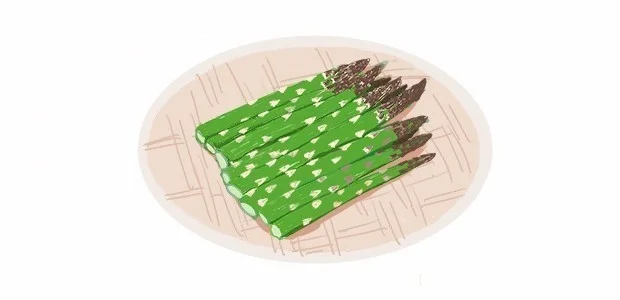中・高 # 1-2: Spring has come! 春が来たよ!(後)
生徒が自ら考え、表現する力を高めたい。
生徒の発話を促すために教師はどのような発問をしたらよいのか?
ここでは、今日の授業に役立つ問いかけの例を毎週トピックとともにご紹介します。
中学3年生から高校1年生までの生徒を対象としたペアワークを促す展開例です。
前回は「spring」をトピックに、教師による話題提示と質問、生徒間でのインターアクション、そして全体での共有という流れの展開例を紹介しました。
今回はその流れのなかでのさまざまな「意図」や「注意点」などに触れながら、生徒の反応を含めた展開例を示します。
【展開例】 生徒自身の考えを伝え合い、相手が話したことをクラス全体に共有する
T: Spring has come! Winter is over! Are you happy/excited?
Personally I am very happy now simply because I don’t like cold weather.-Do you like spring? Why?
Ask the question to your partner. Then ask why?
(Ask your partner if he/she likes spring? Then Why?)Now, S1, does your partner like spring? Why does /doesn’t he/she like spring?
[生徒の反応を含めた展開例]
S1: Yes, she does. She likes to see cherry blossoms.
T: Oh, I like to see cherry blossoms, too. Do you like spring, S1?
S1: Actually, I don’t like spring. In spring, sometimes we have to say good-bye to our friends.
T: What do you mean?
S1: When we graduate from schools, we have to say good-bye to our friends.
T: In spring, you make new friends, too.
S1: That’s true.

<教師発問の意図>
Do you like spring? Why? という質問は小学校段階でも扱われるものですが、中学3年生または高校1年生がこれに答えることにも意味があります。
より多く英語を学び、使ってきた彼らは、英語学習の初期段階に比べて、より自分自身の考えを表現しようとするでしょう。
また、指導者もそれを促す必要があります。そのために指導者は、興味深い答えを拾い上げ、全体に共有する努力をするべきでしょう。
ここで示したようなことが言える生徒はわずかだと思いますが、間違いはあっても自分の考えを伝える努力をさせるべきです。生徒が自分の考えを表現しきれずにいるような場合には、指導者が生徒の言いたいことを英語にすることを助けてもよいと思います。
T: -What do you think of when you hear the word “spring”?
As for me, I would say new students, new classes and new colleagues.Now, S2, what does your partner think of when he/she hears the word “spring”?
[生徒の反応を含めた展開例]
S2: She thinks of cherry blossom.
T: Yes, many people think of cherry blossom when they hear the word “spring.” Then, how about you?
S2: Well, I think of a strong wind. In spring sometimes it is so windy. Sometimes it wakes me up in the morning. Oh, I think of the yellow dust from China, too.
<教師発問の意図>
What do you think of…? という質問に対しては、生徒はそれぞれ自分の考えを答えることになります。
この質問の場合は、多くの生徒が定番のcherry blossomと答えて「逃げよう」としますが、それでよしとしてしまうと、彼らの「逃げ」を認めることになり、コミュニケーションの授業として発展していかなくなってしまいます。
S2は、「春の風」「黄砂」と個人の考えを伝えており、またこれらは現実のこと、いわゆるrealiaでもあります。
教師はこのような答えが出てくるような雰囲気づくりに努力すべきです。最初のうちは、教師自らこのような答えを紹介してもよいでしょう。
T: When does spring begin here in Japan? Officially spring begins on March 20th and ends on June 21st.
-When does spring begin in Tokyo / Sapporo?
(When do you think spring begins in Tokyo / Sapporo?)T: Then, when does spring begin in Sydney?
(Then, when do you think spring begins in Sydney?)O.K. Now it’s spring here in Japan. In Sydney Australia it’s….?
In Australia, spring begins on September 1st and ends on November 30th.
<教師発問の意図>
このやり取りもまた、realiaを用いたものです。
このやり取りのなかで、生徒たちは東京と札幌の季節の違い(桜の開花は、札幌の方が約1カ月半遅いこと)を学ぶでしょうし、南半球のシドニーの春がいつ始まって、いつ終わるかを知ります。
これが「英語で学ぶ」の実践です。
T: What are seasonal foods in Spring. I would say…. bamboo shoots.
I love bamboo shoots rice and bamboo shoots tempura.What seasonal food in spring do you like? I love “sansai.”
What is “sansai” in English?
Interestingly it is “wild vegetables” or “mountain vegetables.”S3, what seasonal food in spring do you like?
[生徒の反応を含めた展開例]
S3: I love asparagus. I love strawberries, too.
T: You said you love asparagus. Which do you like, green one or white one?
S3: I like green one better.

<教師発問の意図>
前回とは少し展開を変えてみました。
「春の食べ物では何が好きか?」という質問への「アスパラ」という答えに対して、さらに「グリーンアスパラとホワイトアスパラのどちらが好き?」という質問をしています。
この質問に対しては、生徒が皆それぞれの答えを持っているので(私の経験では、ホワイトアスパラが嫌いで食べられないという生徒が多くいました)、質問自体に面白さがありますし、oneの使い方に触れさせる機会にもなります。
春の魚について触れ、Can you write “sawara” in Chinese character?”と質問して、答えの「鰆」を板書してもよいでしょう。realia + triviaを用いた授業展開の例です。



